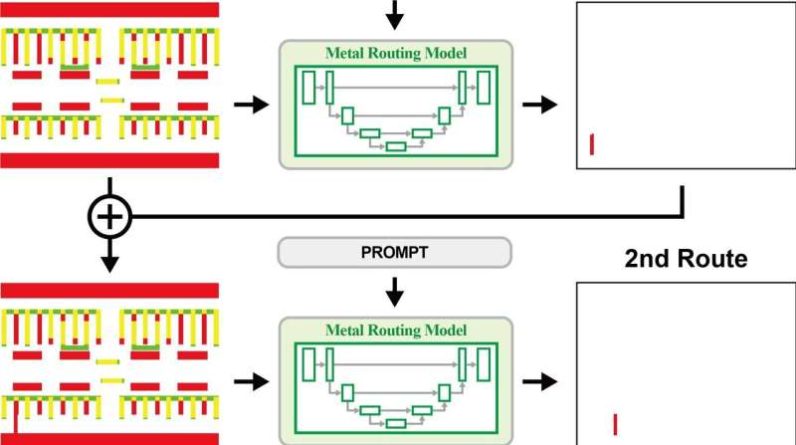
Silverback AI Chatbot has announced an enhancement to its conversational automation platform with a focus on expanding the capabilities of its AI Agents system. The new update supports a growing shift in how companies are leveraging AI Automation to manage customer and operational interactions through autonomous, multi-step workflows that traditionally required live human involvement.
The development represents a continued evolution of the AI Chatbot landscape moving from simple, scripted tools to systems that can independently process tasks with logic, memory, and outcome-based reasoning. Unlike conventional chat interfaces limited to keyword triggers or one-off replies, Silverback’s AI Agents are engineered to understand task objectives, track progress, and take action over time, often across multiple systems or channels.
At the core of this shift is the concept of agentic architecture. AI Agents, as deployed in Silverback’s framework, are designed to operate with goal persistence. Once assigned a task such as booking an appointment, qualifying a lead, or responding to a support ticket the agent proceeds through a structured sequence of steps, adapting to new inputs as they occur. These tasks may span multiple user sessions, involve complex decision trees, or require accessing and updating external systems like CRMs, calendars, or knowledge bases.
Silverback’s AI Chatbot platform integrates these agents into a broader system of AI Automation that combines natural language understanding with programmable business logic. This integration allows for AI-driven conversations that do more than just answer questions they can initiate, track, and complete real tasks in real time.
The agents function by orchestrating different components, including large language models for language comprehension, secure APIs for data handling, and memory modules that preserve user context over time. This configuration enables the chatbot to shift from reactive interaction to proactive task execution. Whether it’s following up with a customer days after their initial inquiry or routing information between departments, the agent acts as a self-contained operator within defined business parameters.
The update is designed to meet growing demand from small to mid-sized businesses that require intelligent automation but do not have in-house AI development capabilities. By removing technical barriers to entry, the platform allows users to configure their own AI Agents without needing to write or maintain complex codebases. Users can define goals, connect systems, and customize workflows through an accessible interface.
In application, the AI Agents are being adopted for diverse use cases across industries. A professional services firm may use an agent to onboard clients and collect required documentation. An online retailer might configure agents to handle common post-purchase queries, return processes, or shipping updates. Each agent is tailored to the specific workflow requirements of the business deploying it.
A defining characteristic of these agents is their ability to manage continuity in asynchronous interactions. Unlike legacy AI Chatbot models that lose context after a session ends, Silverback’s AI Agents retain memory and can resume conversations where they left off. This continuity allows them to guide users through extended processes that may not be completed in one sitting, while ensuring data consistency and task integrity.
Security and governance are built into the system’s architecture. As AI Automation becomes more deeply integrated into customer-facing and internal systems, Silverback has focused on ensuring compliance with global data protection standards. Data passed through the AI Chatbot interface is encrypted and processed in monitored environments, with audit capabilities available to business users for transparency.
Performance optimization is another key feature of the AI Agents system. Through built-in analytics, businesses can monitor how each agent is performing—tracking metrics such as task completion rates, customer satisfaction, and conversation drop-offs. This data allows for iterative improvements to workflows and decision trees, resulting in a smarter, more effective automation model over time.
The release reflects wider industry trends pointing toward AI Chatbot platforms becoming more task-centric rather than solely conversational. AI Agents are not designed merely to simulate dialogue, but to deliver tangible outcomes through autonomous operations. As such, their deployment touches on areas of operations, customer service, marketing, and internal administration.
Silverback’s strategy includes continued development of cross-functional capabilities for its agents. While current implementations focus on external interactions—such as customer engagement and sales enablement—the roadmap includes potential extensions to internal business support roles. Future versions of AI Agents may assist with employee onboarding, document generation, or real-time reporting for teams operating in hybrid or remote models.
The company has also made available a library of onboarding resources, configuration templates, and technical support channels to assist non-technical users. These tools are intended to accelerate deployment timelines and improve usability, allowing businesses to focus on defining task outcomes rather than managing infrastructure.
As businesses continue to explore the possibilities of AI Automation, tools like Silverback’s AI Agents provide a bridge between high-level strategic goals and day-to-day operational execution. By combining persistence, adaptability, and system integration within a conversational framework, these agents mark a new phase in the practical deployment of AI technology.
Analysts observing the shift note that agent-based AI Chatbot systems are playing an increasingly central role in modern business environments. The move from static chat tools to intelligent agents capable of executing workflows represents not only a technological upgrade but also a fundamental shift in how companies can structure digital labor.
The growing functionality of AI Agents is also prompting broader discussions around oversight, responsibility, and value alignment in automation. While the agents can operate independently, Silverback has emphasized the importance of maintaining human visibility into critical operations, ensuring that business rules, ethics, and user trust are upheld.
With the ongoing expansion of AI capabilities, Silverback’s development of its AI Agents system positions it as part of the next wave of intelligent automation tools. Businesses looking to streamline tasks, enhance user experience, and reduce operational friction now have access to tools that are both technically advanced and operationally accessible.
Additional information about Silverback AI Chatbot and its AI Agents system is available at





